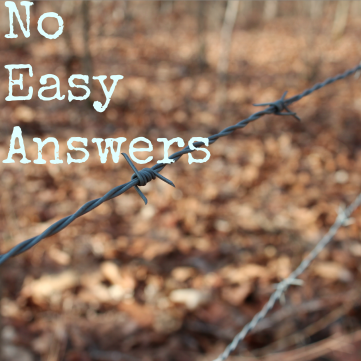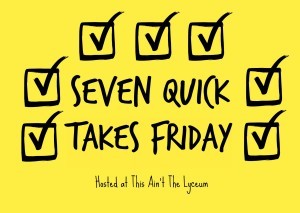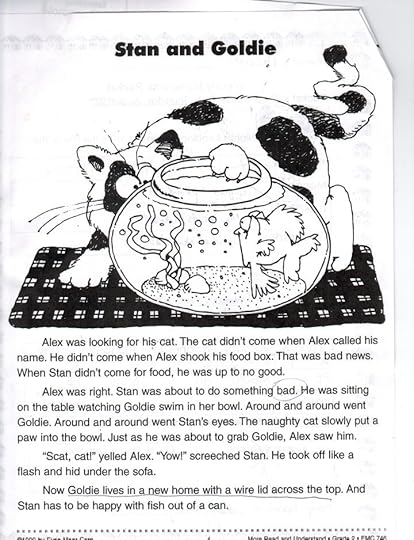Kathleen M. Basi's Blog, page 37
September 28, 2015
The Difficulty of Forgiveness (A No Easy Answers Post)
It was like a sucker punch to your most vulnerable spot. It felt calculated. Cruel. And completely unnecessary.
I reacted as most of us do when we are hurt. I got angry. So angry. I stewed over it, prayed over it, lived with it, and over and over I came to the conclusion that no response was appropriate or even possible. I simply had to forgive and move on.
But forgiveness is a hard, hard concept. It is an act of will, and in the face of repeated injury, will fails. There’s a reason the saying is “forgive and forget.” The only way to move forward in relationship is to truly leave it behind, to start anew, without the baggage of the past changing the shape of the future.
And yet there’s a line, a point at which you have to flip into self-preservation mode. Or is there? No matter how you spin the numbers, that Gospel passage is pretty clear: seven times seven times, seventy-seven times—in Biblical numerology, seven is the perfect number. There is no upper limit. There is no line of self-preservation.
We’re just supposed to forgive.
But after a certain point you can’t forget anymore. And then the question is: if you haven’t forgotten, if you’re still hanging onto it, if you’re just waiting for the next injury to drag it all to the surface again…have you really forgiven at all?


September 25, 2015
Thoughts On The Papal Visit
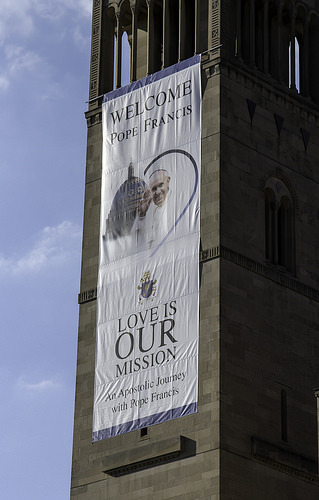
Photo by Lawrence OP, via Flickr
1. I think it must be very discouraging to be the Pope. You go to Congress, you say exactly what the Spirit calls you to say, you challenge them to look at the world from a Christ-centric than political view…and then they all go to the news outlets and tell them, “Well, what he REALLY meant to say was…” and spout exactly the same tired political rhetoric they’ve been inflicting upon everyone all along.
I don’t think I could handle the frustration.
2. The news media can’t quite figure out what to do with this man. They want to stick him in a political category and they can’t, because he’s not a politician, and he’s not making political statements. We hear them that way because the issues are things that are dealt with politically, but these are issues of faith, not of politics. Catholic teaching is radical and challenging to both sides of the political spectrum; in other words, it stands apart. I’ve said that before, but now it’s being illustrated right in front of our eyes.
3. I love how the Pope keeps gently reminding people that the primary purpose of his visit is the World Meeting of Families. Now that I’m seeing Facebook feeds from people who are there I sort of wish I’d made the monumental effort to make that happen for our family. But then, things work out as they’re supposed to.
4. I’ve realized anew this week that I am a Catholic first and an American second, which, by and large, is not the case for the people who are in positions of power now, picking and choosing what Catholic teachings line up with their chosen flavor of political affiliation. (Them’s fightin’ words on a whole host of levels, I know.) Don’t get me wrong. I understand that a pluralistic country with separation of church and state can’t, by definition, follow Catholic teaching lock stock and barrel. But I can’t separate my faith from my convictions about the way the world should look. I would always put my faith above the Constitution. And for that reason I will never run for office, because I’m not qualified.
5. It’s been fun to have conversations with the kids this week, though. And for all my eye-rolling on the topic of the media, I have to say that in the main, this has been a good week for my Church in the news. Things are being presented to the world that are part and parcel of my everyday vernacular but which are quite exotic to non-Catholics, and that is all to the good. And by and large, they’re being respectful and getting it right, which frequently is an if-fy proposition with the news media. (To say nothing of the entertainment industry, which seems to have an obsession with portraying Catholics and always, always getting it really wrong.)
6. Of course, there are always nay-sayers. There’s an expectation among people of faith that truthful messages will always be greeted with scorn and persecution, so the near-universal appeal of Francis makes some question whether he’s really the real deal. But Jesus drew the multitudes, too; people are drawn to holiness and authenticity and lack of fear, even if not everyone ultimately chooses to heed the message.
7. It’s always easier to see where everyone else is failing to heed the message. Quite a bit trickier to have the honesty and clarity of vision to recognize it in your own life. I think that’s my takeaway from this week: the need to scour my spiritual house and find the places where I am not listening, and learn to do so.


September 23, 2015
The State Of My Life

Looking neither svelte nor attractive, but hey, I’ll own it. It’s the process.
I ran a 5K this weekend. Technically speaking, it wasn’t my first; I did one ten years ago, with Alex in the jogging stroller. But I walked 2/3 of that one. My goal this weekend was to run the whole thing. And I did.
Tuesdays are shaping up to be both the best and worst days of the week: two piano lessons, band, horseback riding lessons, and teaching a flute lesson.
I am riding Michael to and from preschool in the Burley trailer 2 or 3 out of every four days at the moment. It’s less than a mile, but harder than it seems, because the last half mile is a long slow hill that gets steeper the closer to the school you get. Those last two blocks are pretty brutal with 40 pounds on the back end. Hopefully by next spring, Michael will be strong enough to ride his own bike all the way up there.
I have no kids at home for 3 hours, four days a week. But it doesn’t feel like that time goes nearly as far as it did last year, somehow. I think I’ve fully adjusted to being a work-at-home mom now, so nothing seems as much a windfall as it did a year ago.
I had my first mammogram this week. Yee-haw. Nuff said.
I’m giving a recital in 2 1/2 weeks. Details here.
I’m having to water my lawn. Ridiculous weather: it wouldn’t stop raining all summer, and now it hasn’t rained to speak of in a month and a half. Year after year, we say, “What a weird weather year.” There’s a larger message in there, but I’m not picking fights today.
I’m writing with Pope Francis in the background. Love that man.


September 21, 2015
A Single Tombstone
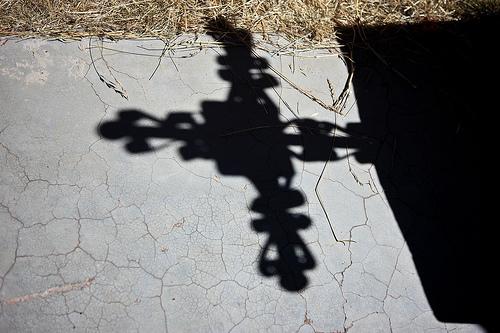
Image by cliff.hellis, via Flickr
It sounds weird to say, but ordinarily, a country cemetery is a peaceful place to “be still and know that I am God.” That’s what I was doing that morning, seeking beauty and peace among the walnut and oak trees and grass, and in the sight of the fox that darted soundlessly along the fence, crossed the road, and disappeared into the woods on the other side.
It’s an old cemetery, many of the stones cracked and repaired, some lying broken on the ground, many of them impossible to decipher, but one flat memorial stone always has a bright array of flowers. I realized I’d never gone over to look at that stone. I left my bench and went to pay tribute, and I realized it was the grave of a father and son–a teenager. They died on the same day.
The thing about being a writer is that you tend to take circumstances and internalize them, try to imagine the story behind the moment or the image. It took only a fraction of a second to create the whole scenario in my own life: receiving that phone call, communicating news to the rest of my children, and trying to recreate my life with a third of my family gone.
At the end of that fraction of a second, I realized I had to stop playing writer–I just had to say a prayer and move on.
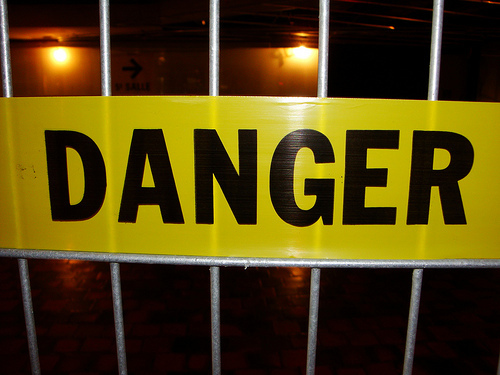
Photo by spcbrass, via Flickr
There are so many things in the world to be afraid of. Especially as parents. The more you send your kids out into the world, the more opportunities arise for catastrophe to befall them. But you can make yourself crazy anticipating them, and it does no good. I know people who do just that, trying to anticipate and prevent all potential harm, and succeeding only in causing themselves and their children anxiety.
I suppose you could argue that I go too far the other direction, giving my children as much freedom as I can possibly justify. But then, I know my own capacity for taking the question what if? and turning it into a debilitating, paralyzing, life-sucking neurosis.
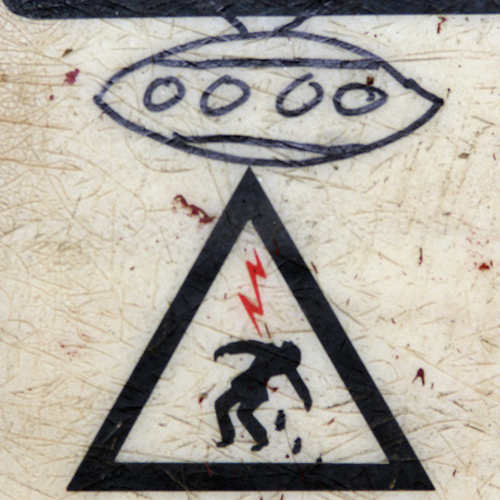
Image by AlbinoFlea, via Flickr
I know, too, that much of my ability to think, problem solve, and discern came from the fact that my parents gave me the freedom to jump off hay bales, climb on farm equipment, ride a bicycle on a highway to go to town and the library, and walk in the woods by myself.
And I know how much mental, emotional work it takes for me to give my own children a fraction of the same freedom. So, for better or for worse, I choose to turn my back on as many of those fears about safety as I can. A single tombstone is a reminder that no matter what I do, danger is always hovering in the periphery. The vast majority of it is beyond my control. If I want to live fully, I have to focus my attention elsewhere.


September 18, 2015
My Tween: The Adventure Begins
 He wants to grow his hair out.
He wants to grow his hair out.
His hair is exactly like mine—ridiculously thick, unruly, and curly—and for years I’ve been mussing his head and telling him if he grew it out we could have the same hair style.
He’s never liked having his hair cut. He’d come inside on hot summer days, with sweat pouring down his face, matting the curls into tight, fat ringlets that stuck to his forehead, and we’d say, “Oh, Alex, you need a haircut.”
“Nooooooo!” he would cry. But we always made him do it anyway. Those hairline curls drive Christian crazy. They just won’t lie evenly, and it makes Alex look like the haircut is crooked. Christian used to go after them with a scissors, which made Alex even more unhappy, because then it just looked weird. Finally Christian decided there was nothing to be done about it except cut all the hair really, really, really short.
Many times, as I trimmed, I would think wistfully of the little boys in his class whose hair fell in nice, fine ringlets–or at least, had hair straight enough to hang beside the face to a length of, you know. An inch and a half. But I knew what would happen if we let Alex follow suit.
Last week, Christian said, “I need a haircut.”
Everyone knows what that means. Haircut for Dad equals haircut for everyone. We do it assembly-line style on the deck, because life is too chaotic to keep track of who had a haircut when. Alex groaned. “I don’t want my hair cut!” he protested.
And I thought, He’s reaching that age. If this is how he wants to express his individuality, I’m okay with that. There are far worse things he could ask for.
So I said, “You want to grow your hair out?”
When he realized I meant it as an option, his eyes lit up. “Yes!”
“Okay,” I said.
And Alex did not get a haircut.
 There’s a certain wistfulness in reaching this point, but mostly what I feel is wonder. Wonder, and tremendous pride. He’s moody and self-conscious, tweening two years before I expected it, and yet it’s thrilling to see him stretching his wing muscles, testing them out, learning who he is and who he’s called to be. He’s always been the child of my heart, the one who is most like me in temperament, and every day I see more of myself coming out. Now that he’s sleeping in the basement, he’s up ridiculously early—dressed and upstairs by 5:15, this morning!—and he’s a compulsive know-it-all. (I’m trying to work on that one with him, but you know. Pot and kettle, and all that.) He asks deep questions about the news and about right and wrong, and I wish he needed more help with his homework, because I actually enjoy having to think through his homework. It’s not paralyzingly boring, like first grade homework, nor is it overwhelming to problem solve how to help make the leaps in cognition, the way it is when I have to help Julianna.
There’s a certain wistfulness in reaching this point, but mostly what I feel is wonder. Wonder, and tremendous pride. He’s moody and self-conscious, tweening two years before I expected it, and yet it’s thrilling to see him stretching his wing muscles, testing them out, learning who he is and who he’s called to be. He’s always been the child of my heart, the one who is most like me in temperament, and every day I see more of myself coming out. Now that he’s sleeping in the basement, he’s up ridiculously early—dressed and upstairs by 5:15, this morning!—and he’s a compulsive know-it-all. (I’m trying to work on that one with him, but you know. Pot and kettle, and all that.) He asks deep questions about the news and about right and wrong, and I wish he needed more help with his homework, because I actually enjoy having to think through his homework. It’s not paralyzingly boring, like first grade homework, nor is it overwhelming to problem solve how to help make the leaps in cognition, the way it is when I have to help Julianna.
I’m reminded of a conversation I had with author/speaker Lisa Popcak last year, because it encapsulates how I feel about my oldest child right now:
“This is where the adventure begins!”


September 16, 2015
Things I’m Thankful For Today

Photo by Michael Francis McCarthy
1. Baking soda. I don’t know how entire industries have gotten entrenched around cleaning products and deodorants, because as far as I’m concerned baking soda works better on both fronts. (With vinegar, in the case of cleaning.) Seriously, try it.
2. Greek yogurt. I’ve been so-so about this but we had it over Labor Day weekend and now I’m trying to find the right brand to give me the cream without the chalk, and a flavor I like (because I’m not a fan of strawberry, blueberry and banana. Not that I’m picky.) At the moment I’m thinking it may be the Aldi brand. Speaking of which:
3. Aldi. Because I have four kids, and three of them are boys, and anyway, if you haven’t been to Aldi in a while, you should really go see how good the selection and quality is, not to mention price!

Photo by brandon king, via Flickr
4. Steel-cut oats for my oatmeal. Not sure I’m ever going back to rolled.
5. Taking Michael to school on my bike and the Burley. Beautiful mornings, bonus exercise, and less driving. That last half-mile slow rise at the end is a bear with 40 pounds on the back, though!
6. Having a laptop. Because I can write just about anywhere: at piano lessons, at horseback lessons, on the deck, on the couch, in my writing corner…I just have to impose self-discipline.
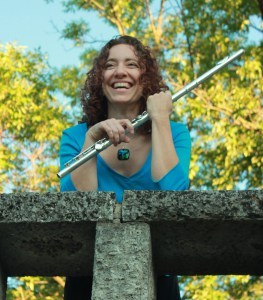 7. My flute. I am preparing for a recital on October 11 and so I’ve been practicing regularly, although certainly not at any level worth bragging about, and it feels good to play, even with that annoying, sometimes-debilitating B-flat air leak. (Hope to get that dealt with today!) I can’t believe my flute is almost twenty years old. Side note: I was thinking back on how I paid for that flute when I was an undergrad. I know I paid for it all myself, and I also know I didn’t have the money, so I must have maxed out two credit cards in order to buy it. So there’s another thing to be thankful for: not carrying a balance on a credit card.
7. My flute. I am preparing for a recital on October 11 and so I’ve been practicing regularly, although certainly not at any level worth bragging about, and it feels good to play, even with that annoying, sometimes-debilitating B-flat air leak. (Hope to get that dealt with today!) I can’t believe my flute is almost twenty years old. Side note: I was thinking back on how I paid for that flute when I was an undergrad. I know I paid for it all myself, and I also know I didn’t have the money, so I must have maxed out two credit cards in order to buy it. So there’s another thing to be thankful for: not carrying a balance on a credit card.
8. Music friends. On that recital I’m playing a trio with my undergraduate flute teacher and a really good friend who was also a student of his. And I’m also playing with my kids’ piano teacher, who I also was friends with in college. We’re getting together every week, at this point, and it’s just so lovely to work with really good musicians and friends.
9. Cooking over an open fire. We have a lot of untreated wood in the back yard, remnants of tearing down a playhouse for the kids that went afoul of the neighborhood covenant police. So we’re trying to burn it all up in the fire pit. I’m experimenting with cooking more than just burgers and hot dogs, and I’m really finding it empowering to have another way to cook outside, both when it’s too hot to cook inside and when it’s beautiful outside.
10. Novel writing. It’s so enlivening.
What are you thankful for today?


September 14, 2015
Suffering Isn’t Sexy, But It’s Been Good For Me
 I was twenty-five when I got married, and I thought I was coming into it really late. By modern standards, of course, twenty-five is early, if anything, but I didn’t know that.
I was twenty-five when I got married, and I thought I was coming into it really late. By modern standards, of course, twenty-five is early, if anything, but I didn’t know that.
In point of fact, I didn’t know much of anything when I got married. About, well, anything. I thought I was a pretty smart, well-equipped young lady, but the truth is I just had a lot of opinions. And a lot of them were pretty smug and screamed “young” and “inexperienced.”
When we’d been married about six months, I got up early to make Christian breakfast on a Saturday, and when he wouldn’t get out of bed to eat it, I threw an almighty tantrum of weeping and resentment that makes me cringe to remember.
During some fight in those early months, I think I smacked him.
Sometimes, thinking back, I don’t understand how we managed to stay together, let alone create a marriage that has weathered so much and become so strong and life-giving, in every sense of the word.
But I think the answer is in the “weathering.”
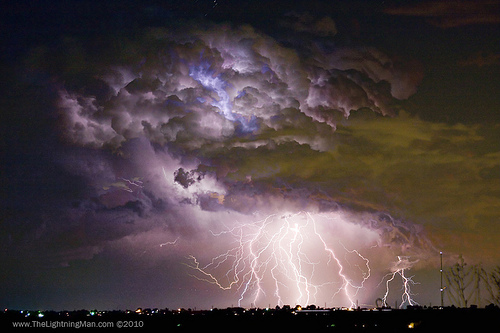
Photo by Bo Insogna, via Flickr
It doesn’t happen often anymore, but there have definitely been times in my life when I’ve shaken my fist at the heavens and given God a piece of my mind about his version of “fair.” Anxiety. Infertility. Disability. ICU stays. We’ve dealt with more than our share of marital and family drama. But suffering through those difficult circumstances–and in the case of disability, the permanent reality—matured us. Both of us, but in particular I reflect upon it in myself. When I got married I was incredibly self-absorbed, with a child’s black and white, all-or-nothing view of the world. Suffering is the vehicle that gave me depth and wisdom and understanding, and whatever modicum of patience I now possess.
Christians wrestle with the concept of suffering, and non-Christians even more so. We get all twisted up in whether good can come of it or whether it’s utterly useless. We do everything possible to avoid it ourselves, and run for the hills when casual acquaintances face it alone. We view it by turns as a test from God or punishment from God, or proof that He doesn’t exist at all.
But the truth is that suffering is the only way we grow as people. Suffering is what sensitizes us to the beauty of the ordinary—what puts into perspective the things that really matter and the things that don’t. It’s what teaches us empathy.
Suffering is what makes us better people—as long as we approach it with openness and an eye to learning, instead of rage and resistance, which lead to bitterness.
I wouldn’t go back to those hard times in my life. But I wouldn’t trade them, either.


September 11, 2015
A Christian Mom Talks Sex Ed

Photo by Thomas Rousing Photography, via Flickr
We spent the summer of 2015 preparing rooms and moving kids around the house. Partly, this was because Nicholas and Alex were driving us insane with their nonstop bickering. But even more so, it was because Julianna, at age 8, was still sharing a room with Michael, age 3. Let me illustrate the problem:
Bath time. Michael in the tub. Julianna getting in. Michael looks up at Julianna and gets a horrified look on his face. “DADDY!” he yells at the top of his lungs. “JUWEEANNA IS MISSING A PENIS! JUWEEANNA NEEDS A PENIS!”
Sex ed in our house has always been ongoing and ubiquitous, in part because we have four kids who seem incapable of covering their bodies before they go running from one part of the house to another, but also because of course, we teach natural family planning in our living room. We have a much higher comfort level with topics surrounding sexuality than most people do. This became clear when Christian went to back to school night and the 5th grade teachers told the parents this is the year they start breaking open the topic. Apparently there was a noticeable undercurrent of discomfort among the parents.
I’ve done a lot of thinking about issues of sexuality over the years—as you can tell by the number of posts on the topic—and the more I think about it, the more convinced I am of the dysfunction in our collective relationship to our sexuality.
In some parts of the world people refer to Americans as puritans about sex. For a long time, I found this puzzling. How can you call us puritan about sex when the entire civilization seems structured upon sex, from advertising to entertainment and right down the line? But I’ve come to realize it’s true.
We want unrestricted access to sex, but we don’t want to talk about it. We get squeamish about the details, to the point where most women really have no idea how their body works, and can’t read the signs of fertility and infertility that have always been there, except when they’re suppressed by drugs. Nobody ever acknowledges that sex pretty much never plays out like it does in the movies—it’s not nearly as pretty. Whether we want to admit it or not, our cultural norm surrounding sexuality is that it is something naughty, dirty, and salacious, and hence, any discussion of it will automatically corrupt our children’s blinding white innocence on the subject.
It is our own dysfunctional attitudes toward sex that make it so hard for us to teach it to our children in a healthy way.
The thing is, kids are getting messages about their sexuality, whether we teach them or not, because it permeates the popular culture. It even permeates the news, for Heaven’s sake. And like it or not, they’re getting messages and formation about their sexuality from every single interaction they have with their parents, too, even if the parents punt and freak out and avoid the topic. It’s just that the message that’s being sent, in that case, is one that perpetuates the dysfunctional relationship with our sexuality through another generation.
Obviously, I feel strongly on this topic. I think it’s a bad idea to put off all discussion of body and sexuality until age 10 or 11. I think we as parents have to get over ourselves. We have to admit that we have hangups that we need to hang up, and wounds for which we need healing. And I say this, not from a perspective of judgment, but from the perspective of one who has had to (and continues to) face my own hangups and wounds on the topic.
I speak now specifically to Christian parents. We cannot sit around gnashing our teeth at the misuse of sex in our culture, and fail to admit our own part in perpetuating the problem from one generation to the next. As parents, we can teach our kids a healthy view of sexuality, or an unhealthy one. And if we’re scared of the conversations, it’s virtually guaranteed that we’re going to do the latter rather than the former.


September 9, 2015
A Portrait of Julianna, Age 8
People are frequently curious about what a child with Down Syndrome is like. I certainly wanted to know that when I was new to the world of disability. So I like to check in on “who Julianna is” every so often. It’s been a while since I did this, and Julianna is growing. Not particularly in size—she’s now smaller than Nicholas on both height and weight; she’s speeding toward age 9, but size 6 clothes still fit her. But she is definitely coming into her own as a girl. Not a little girl anymore. Just a girl.
So I’m going to take a snapshot of Julianna today. But let me caution that this is only a snapshot of one child with Down syndrome. I tell people all the time to think about their high school class. You knew there was a huge range in your classmates’ ability to learn and achieve; you’d never, ever try to take a portrait of one person and say it applied to everybody. With Down syndrome, that range is even wider. But, with that caveat aside, here’s a snapshot of my girl as she enters the second grade.
Singer: she’s not too particular about pitch, but boy, that girl has volume. At church she sings the Gloria and the Holy at such a decibel level that she carries over the amplified choir and the 800-odd people around her. We see the smiles flit around the church all the time; even the priest has one tugging at his lips. This past weekend we were in southern Illinois, in a church that seats quite considerably fewer than 800, and it wasn’t full. Those poor people had no chance. I watched with amusement as the faithful sitting two rows in front of us shifted, looked at each other, and smiled. A parent could choose to interpret any smile as making fun of their daughter, except it’s so clearly joy-filled. People respond to Julianna’s enthusiasm.
Social Butterfly: We cannot go ANYWHERE, and I mean that quite literally, without Julianna attempting to meet every person on the premises and tell them about her fire drill or that she’s going to be Anna from Frozen for Halloween. (Remember this?) She was going around IHOP in St. Louis on the way to Illinois this past weekend. And if there’s a child under the age of two? Oh, Heavens. You can’t pry her away. Most people, to my surprise, react to this blatant flying-in-the-face-of-American-privacy-and-individualism with smiles and grace. I’m always torn between trying to honor the gift of extroversion she has been given and trying to teach her that the rules apply to her too.
Goofy: I will just give you two conversations for illustration, both from our road trip this past weekend.
Christian: “Who wants some ice cream? I think they have vanilla and chocolate, and maybe even a swirl.”
Julianna: “I want CHOCOLATE! I love chocolate.” (She says this in a clipped tone of voice you can only call sassy.)
Christian laughs. “Do you like chocolate?”
“YES!”
“Are you sure?”
“YES! Chocolate, chocolate, chocolate!”
And:
Julianna: ”Can I have some medicine in my spoon?”
Christian: “What? No, you don’t need medicine. You’re not sick.”
In a tone of outrage: “Yes! I am! (cough-cough-cough).”
Bossy: She will boss anyone. But she does it with this silvery giggle that makes it utterly charming. And again, I’m caught between honoring her charism and trying to teach her social norms.
Solo dweller: After our summer reorganization project, Julianna has her own room, including a canopy bed that once belonged to her aunty. She loves it.
Tooth-clinger: Every time we go to the dentist I learn how many teeth my daughter has lost on the sly. Nicholas has been losing teeth this summer to great drama and refusal to pull them out, even when they’re grotesquely hanging by a thread. Whereas Julianna, the other morning, said, “here Mommy,” and handed one to me at breakfast. I didn’t even know she had a loose tooth. Because Nicholas had just had a tooth fairy visit that very night, this was the first time she knew what happens when you put a tooth under your pillow (or in a Ziploc bag, in our house). She was all giggly about it.
We still have to work to understand her sometimes—for instance, instead of “world,” she says “wehld;” instead of “girl,” she says “gel.” Still, she doesn’t need an interpreter anymore—except on the phone.
Math, so far, is not too bad this year. Instead, it’s reading comprehension that’s causing us headaches.
She’s very concrete. If you read the story above, you would undoubtedly be able to answer questions like, “What would have happened if Alex had not found Stan?” Typically-developing people can make intuitive leaps when things are not spelled out, like: the cat would have eaten the fish. But it’s never said that the cat wants to eat the fish; we’re supposed to figure out that he wants to eat the fish, based on his actions. But Julianna has no context for knowing that cats like to eat fish, and she certainly doesn’t have the cultural background to know all those cliché references to cats with their paws in the goldfish bowl. Most kids don’t, frankly, but they have the cognitive savvy to make the connection. For Julianna, those kind of leaps are not intuitive–maybe not even possible. She has this intensely concrete way of looking at life. It just doesn’t even compute for her.
This is wordier than I ever allow myself to be on my blog, so I’m going to cut it today. Do any of you have questions about Down syndrome or life with Down syndrome you haven’t seen me address? Leave me a comment and I’ll see what I can do!


September 2, 2015
Bye, Summer!
I’m up against a deadline this week, so I’m bowing out until after Labor Day. See you next week!
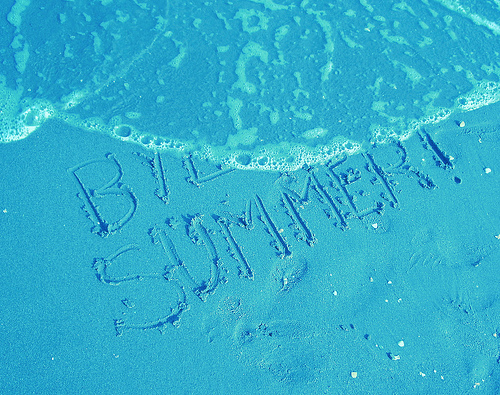
Photo by newpn2000, via Flickr



